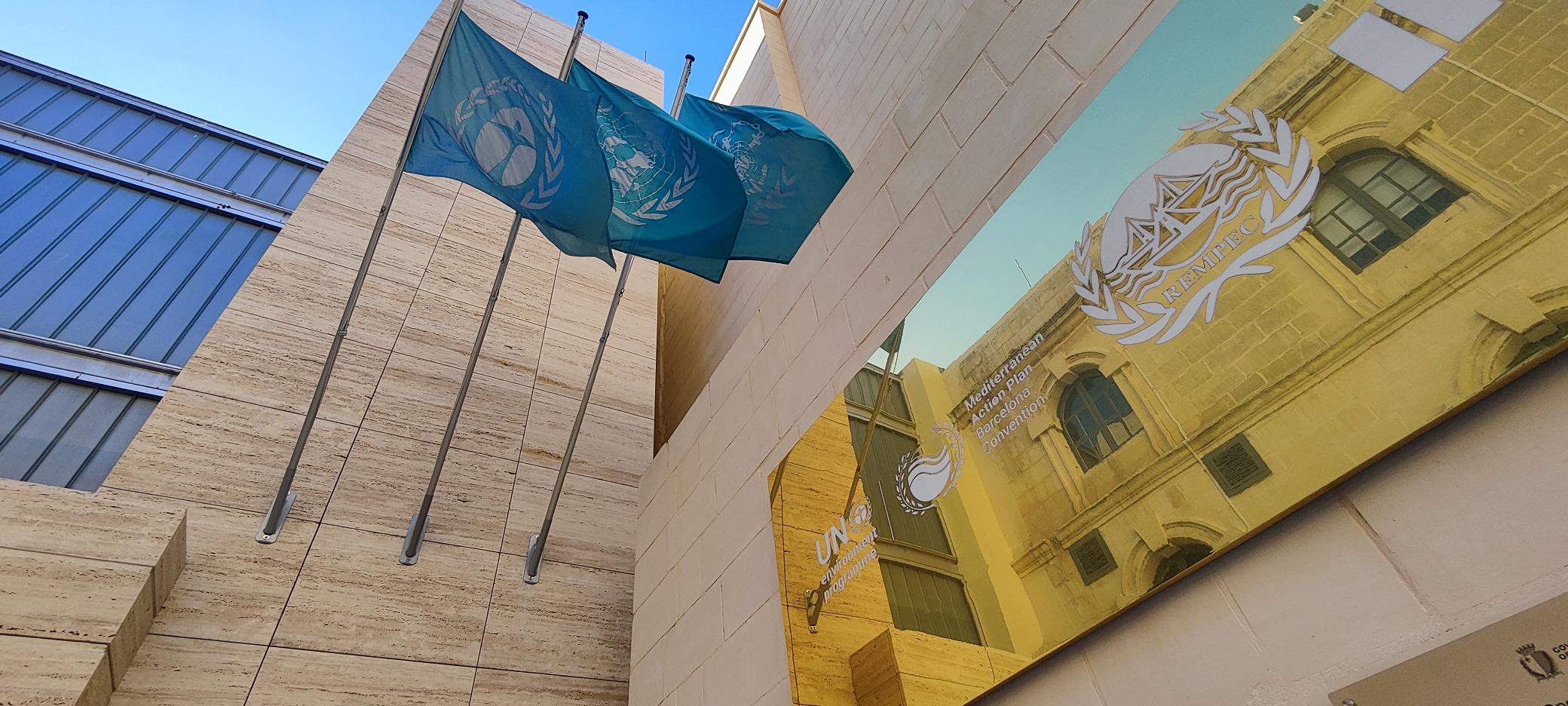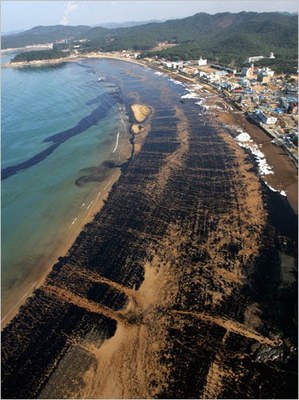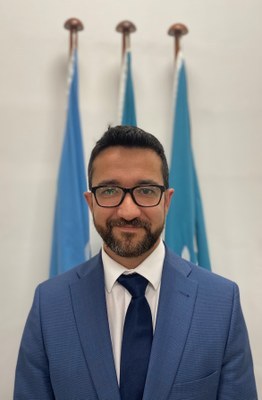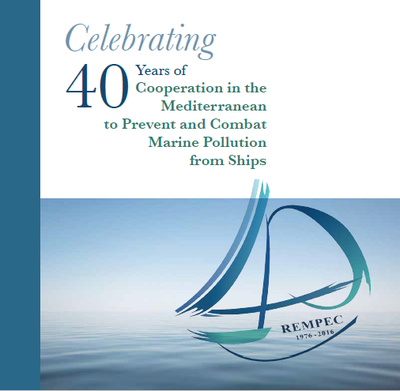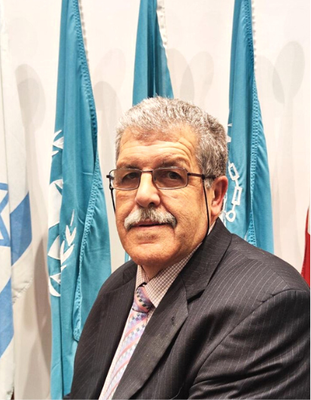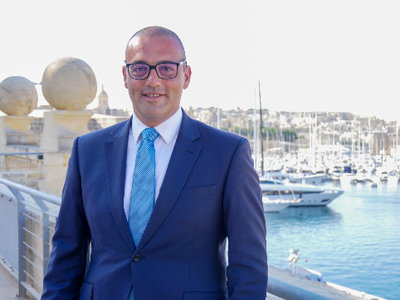Our History
After the creation of the Regional Seas Programme of the United Nations Environment Programme (UNEP) in 1974, the Mediterranean became the first region to adopt an Action Plan, namely the Mediterranean Action Plan (MAP) of 1975.
The Diplomatic Conference of Plenipotentiaries of the Coastal States of the Mediterranean Region for the Protection of the Mediterranean Sea, was convened in Barcelona, Spain, from 2 to 16 February 1976 and adopted the Convention for the Protection of the Mediterranean Sea Against Pollution (“the Barcelona Convention of 1976”), which strives to protect the marine environment and coastal zones through preventing and reducing pollution and, as far as possible, eliminating pollution, whether land- or sea-based. The Barcelona Convention was adopted together with the Protocol for the Prevention of Pollution in the Mediterranean Sea by Dumping from Ships and Aircraft (Dumping Protocol) and the Protocol Concerning Co-operation in Combating Pollution of the Mediterranean Sea by Oil and other Harmful Substances in Cases of Emergency (“the 1976 Emergency Protocol”).
The 1976 Emergency Protocol makes reference to the “Regional Centre”, the meaning of which is clarified in Resolution 7 of the said Diplomatic Conference, which relates to the establishment of a Regional Oil Combating Centre for the Mediterranean Sea in Malta.
On the basis of the mandate provided by the said Resolution, the Executive Director of UNEP and the Secretary-General of IMO, then known as the Inter-Governmental Maritime Consultative Organization (IMCO), signed a Project Document re the establishment and operation of the Centre on 2 September 1976. The Regional Oil Combating Centre (ROCC) was officially established on 11 December 1976, in accordance with the decision of the Contracting Parties. The mandate was to strengthen the capacities of coastal States in the Mediterranean region, facilitating cooperation between them and helping to combat massive marine pollution by oil, particularly by developing national capacities to combat oil pollution, establishing a regional information system which would efficiently manage marine pollution emergencies. However, the mandate will be extended over the years in conformity, with the decisions of the Contracting Parties to the Barcelona Convention of 1976 with a view to addressing relevant emerging issues and the respective global developments, with a particular focus on preventive measures against pollution from ships.
Former Director of REMPEC (1976 - 1984)
The idea of establishing a Regional Centre to respond to marine pollution in the Mediterranean Sea during the mid-70’s stemmed from various sources. Certainly the Protocol on Co-operation in Combating Pollution of the Mediterranean Sea by Oil and other Harmful Substances in Cases of Emergency, adopted in 1976 was a determinant factor, as well as the acknowledgement of the lack of regional contingency plans for co-ordinated action to prevent, control and combat oil spills, especially in emergency cases. There was undoubtedly a need to assist the development and strengthening of the Mediterranean coastal States and to facilitate cooperation among them to deal effectively with cases of massive pollution.
It would have been foolish to regard the Mediterranean Basin as free from pollution and oil spill-risks; the need to prepare for and respond to oil spills among the Mediterranean coastal States has always been of paramount necessity. Consequentially, the said Regional Oil-Combating Centre for the Mediterranean was established through the adoption of Resolution 7 in order to assist the Contracting Parties on the abovementioned challenges.
At its inception, several actions were initiated by the Centre. As a Director, I undertook several visits to the concerned authorities in charge of oil spill response, visiting all but one coastal State to introduce the ROCC. These visits and questionnaires were hugely valuable, enabling our Centre to establish a network through contact points and liaison means, collecting data on appropriate response equipment and products used for oil spill response. Information was gathered on available experts in the Mediterranean basin from the Contracting Parties, and response equipment manufacturers were also contacted. The Centre gathered credible technical knowledge and was quickly in a position to reply to technical questions issued by coastal States. Besides that, National Contingency Planning was one of the main focuses for the ROCC during its early years, and information was gathered and disseminated to the Contracting Parties. This was followed up with training and seminars. This initiation phase enabled us to define official procedures and tools, such as the information systems. The relevance of this work and the support of the ROCC became obvious to the Mediterranean region when the pollution event of the AMOCO CADIZ occurred in 1978, and served as a wake-up call on the importance of such a Centre.
The ROCC was first dependent on the coastal States’ will to co-operate, and on whether their trust would be imparted to the Centre. The Centre then faced technical and financial limitations during its first years. However, by the end of the 70s, the Centre had already provided scientific and technical information to Cyprus, Lebanon, Malta, Morocco, Tunisia, Yugoslavia etc… The Centre rapidly faced increasing demand for assistance from the Contracting Parties, and notably with regard to the development of National Contingency Plans. The ROCC responded in the best way that it could, within the constraints of the human resources available at that time, as the importance of the need to prepare for and respond to oil spills among the Mediterranean coastal States was a recurring continual need made ever present to the Centre under my mandate. Reflecting back upon the progress achieved, in 1976 there were only two countries with fully developed National Contingency Plans, and yet today this number has progressed to eighteen out of twenty-one, with ongoing developments for further progress in this field.
Additionally, activities involving several key players and stakeholders, like the identification of high risk areas, involved initiating immediate responses from scratch, together with projects’ consortia, United Nations institutions, as well as concerned regional institutions.
Furthermore, it is worth noting that in the then pre-internet era, communications means were more limited, and exercises under my mandate called for improved communications to ensure efficiency in case of emergency. During its first 3 years of existence, 10 spills were notified to the Centre, albeit some were only communicated to the Centre after considerable delays.
Whilst rewarding, the initiation phase also had its challenges: the Centre was at the exploratory stage in terms of its objectives and functions for many years following inception. However, in view of the Centre’s journey, which is still going strong four decades later, the Mediterranean region should be proud of such an initiative.
The Barcelona Convention of 1976, the Dumping Protocol and the 1976 Emergency Protocol entered into force on 12 February 1978.
The Mediterranean Regional Trust Fund for the Protection of the Mediterranean Sea Against Pollution (MTF) was established and a budget created for ROCC, covering the Centre’s operating costs and activities.
Former Director of REMPEC (1984 - 1988)
Regional cooperation in case of pollution events is not a new notion by any means. The Mediterranean region has shown a long-standing and tangible will for cooperation. Indeed, it was the third region in the world, after the North and Baltic Seas, where a regional agreement for cooperation in combating pollution in case of emergency was adopted, and the first one within the framework of the United Nations Environment Programme (UNEP)’s Regional Seas Programme created in 1974. The foundations for international co-operation in the Mediterranean Sea area in the field of prevention, preparedness for and response to marine pollution are laid down in the Convention for the Protection of the Mediterranean Sea against Pollution (Barcelona Convention) and its Protocols, and in particular its Protocol Concerning Co-operation in Combating Pollution of the Mediterranean Sea by Oil and Other Harmful Substances in Cases of Emergency (the 1976 Emergency Protocol).
The 1976 Emergency Protocol is the legal instrument setting the main principles of cooperation in dealing with threats to the marine environment, the coasts and related interests of the Contracting Parties to the Barcelona Convention posed by accidental releases or by accumulations of small discharges of oil or other harmful substances. This remit then extended to include co-operation in the field of prevention of pollution of the Mediterranean Sea by ships, after its revision in January 2002. The intention of this revision process was to align the 1976 Emergency Protocol with texts of other relevant international legal instruments developed following the adoption of the 1976 Protocol, including the International Convention on Oil Pollution Preparedness, Response and Co-operation (OPRC 1990). It also took into account the contribution of the then European Community in implementing international standards relating to maritime safety and preventing pollution from ships, and I am confident that the work of the “Regional Oil Combating Centre” (ROCC), established in 1976, undoubtedly inspired the drafting of the OPRC 90 Convention show-casing the Mediterranean’s pioneering experience in this field.
Co-operation takes on its full meaning in an environment such as the Mediterranean basin. Its semi-enclosed nature due to its physical and chemical conditions, together with the delicate balance of both its natural and man-made environments, make it vulnerable to pollution events. This was even more true during the beginning of the 80s, when equipment and knowledge were scarcer and when only seven coastal countries were implementing National Contingency Plans in the whole Mediterranean. To top it off, the socio-economical discrepancies between the Contracting Parties themselves reinforced the delicacy of the situation. The regional cooperation thus had to be factored in, and appeared more than ever indispensable to surpass challenges faced by each individual coastal State in protecting their common interest, the Mediterranean Sea.
In light of the above, not only was REMPEC, then known as ROCC, endeavouring to establish connections with international organizations of the Mediterranean basin, it was also liaising with sea professionals, response equipment manufacturers, the scientific community and stakeholders from other regions to strengthen co-operation. Besides, the Contracting Parties, aware of their commitments under the 1976 Emergency Protocol, as well as the then-draft Offshore Protocol, acknowledged the necessity for Guidelines to facilitate the implementation of the Protocols, and in particular mutual co-operation in the Mediterranean. Similar Guidelines had already proved their efficiency in past experiences, hence the decision to embark on such a process. The Contracting Parties consequently relied heavily and benefited greatly from the input of REMPEC to draft the said document.
The adoption of the resulting Guidelines for co-operation in combating marine oil pollution in the Mediterranean by the Fifth Meeting of the Contracting Parties to the Barcelona Convention and its Protocols, proved to be a great advance towards a fast and actual cooperation in case of an emergency.
In 1987, the Centre’s mandate was extended to include “hazardous substances other than oil”.
Former Director of REMPEC (1988 - 1998)
Following the inception of UNEP’s 1974 Regional Seas Programme, in 1975, the Mediterranean was the first region in the world to adopt an Action Plan. The Diplomatic Conference of 1976 adopted the Convention for the Protection of the Mediterranean Sea Against Pollution together with two Protocols, including the Protocol concerning Co-operation in Combating Pollution of the Mediterranean Sea by Oil and other Harmful Substances in Cases of Emergency (Emergency Protocol), thereby establishing a framework for regional co-operation. Furthermore, the said Diplomatic Conference also adopted a Resolution to establish what then became our Regional Oil-Combating Centre, entrusting the IMO with its responsibility and duties: the ROCC was then born, the precursor of REMPEC.
The Emergency Protocol and the relevant IMO Conventions mentioned in its preamble, supplemented by guidelines and manuals, constitute the legal basis for developing national legislation and implementing national and regional arrangements (including sub-regional ones) concerning preparedness for and response to accidental pollution incidents.
The evolution of the Mediterranean’s historical context and the legal framework described above have fundamentally shaped the evolution of the Centre:
The ROCC’s initial phase was for many reasons a challenge, due to its innovative nature in the Mediterranean, also because of the disparity in the level of preparedness of States. Furthermore, the designation of competent national authorities of the Parties was not always optimal.
My mandate was undertaken during the second phase of the Centre, when the ROCC was renamed as REMPEC, undertaking changes to enable the Centre to overcome some of the previous phase’s difficulties, and to better achieve the objectives and functions it was assigned by the Diplomatic Conference of 1976, including:
- the extension, upon decision of the Contracting Parties, to expand the Centre's scope to incorporate preparedness for and responses to marine pollution incidents by hazardous substances;
- the development of the regional information system, databases and decision support systems;
- the development of several guidelines for co-operation in case of emergency, as well as the establishment of the Mediterranean Assistance Unit, together with a special fund to cover certain expenses in case of an emergency;
- the development and implementation of projects for the preparation of sub-regional agreements through the support of the European Community’s LIFE financial mechanism.
The third phase represented a turning point, because of the revision of the Protocol and its extension to include prevention. The objectives and functions of the Centre have thus been modified to include prevention aspects and mainly pertain to strengthening both the capacity of the Contracting Parties and the regional co-operation to implement international Conventions in an effective manner.
In 1989, the name of the Centre was changed to the Regional Marine Pollution Emergency Response Centre for the Mediterranean Sea (REMPEC).
The Contracting Parties adopted the Protocol for the Protection of the Mediterranean Sea Against Pollution Resulting from Exploration and Exploitation of the Continental Shelf and the Seabed and its Subsoil (“the Offshore Protocol”).
Whilst the Offshore Protocol specifically requests Contracting Parties to the Barcelona Convention to implement mutatis mutandis the provisions of the 1976 Emergency Protocol, in cases of emergency, it also details the role of REMPEC in this matter.
The Mediterranean Assistance Unit (MAU), consisting of an expert advisory service available remotely or on-site upon request of a Contracting Party in case of an emergency situation, was established by the Eighth Ordinary Meeting of the Contracting Parties to the Barcelona Convention and its Protocols (Antalya, Turkey, October 1993).
The Contracting Parties adopted the Protocol for the Protection of the Mediterranean Sea Against Pollution Resulting from Exploration and Exploitation of the Continental Shelf and the Seabed and its Subsoil (“the Offshore Protocol”). Whilst the Offshore Protocol specifically requests Contracting Parties to the Barcelona Convention to implement mutatis mutandis the provisions of the 1976 Emergency Protocol, in cases of emergency, it also details the role of REMPEC in this matter.
The Action Plan for the Protection of the Marine Environment and the Sustainable Development of the Coastal Areas of the Mediterranean (MAP Phase II) was adopted by the Contracting Parties to the Barcelona Convention. At the same time, the Barcelona Convention of 1976 was amended and renamed the “Convention for the Protection of the Marine Environment and the Coastal Region of the Mediterranean” (“the Barcelona Convention”).
The amendments pertain to, inter alia, sustainable development concept, precautionary principle, polluter pays principle, environmental impact assessment procedure and integrated coastal zone management. It addresses some crosscutting issues, such as pollution monitoring of the Mediterranean Sea, scientific and technological cooperation, environmental legislation, public information and participation, and liability and compensation.
The adoption of a Resolution on a “Regional Strategy on prevention of pollution of the marine environment by ships” opened the way for amending the 1976 Emergency Protocol.
Contracting Parties initiated a long and wide consultation process to review the 1976 Emergency Protocol in order to address the prevention of marine pollution, but also to bring its text up to date.
Former Director of REMPEC (1998 - 2005)
The late 90s marked a significant step forward, a kind of turnabout, with regards to REMPEC’s mandate and responsibilities.
In 1992, the Earth Summit - UN Conference on Environment and Sustainable Development held in Rio de Janeiro - adopted the Rio Declaration on Environment and Development as well as the Agenda 21, which specifically urged the Countries to an effective enforcement of the principles of a Sustainable Development. In particular, Chapter 17, which was devoted to the protection of Oceans and Seas, including enclosed seas and coastal areas, stated that “The marine environment forms an integrated whole that is an essential component of the global life-support system and a positive asset that presents opportunities for sustainable development. International law, as reflected in the provisions of the UN Convention on the Law of the Sea, sets for rights and obligations of States and provides the international basis upon which to pursue the protection and sustainable development of the marine and coastal environment and its resources. This requires new approaches to marine and coastal area management and development, at the national, subregional, regional and global levels”.
In 1995, the Contracting Parties to the Barcelona Convention, amended the Convention adopted in 1976, renamed this the “Convention for the Protection of the Marine Environment and Coastal Region of the Mediterranean, and adopted the new Mediterranean Action Plan 1995-2005 (MAP Phase II) to replace the MAP 1975 –the first plan adopted as a Regional Seas Programme under UNEP’s umbrella. In both of these documents, the Mediterranean Countries took into account the provisions of the Rio Declaration and Agenda 21. In particular, the Contracting Parties agreed to prioritise a “prevention attitude” while promoting sustainable development in the Mediterranean region, with the aim to better protect the marine-coastal environment.
Because of these reasons, the Mediterranean Maritime Community and the Contracting Parties recognised that a regional legal instrument focusing only on preparing for and responding to accidental marine pollution (as the Emergency Protocol 1976) was neither appropriate nor adequate to face the new challenges and risks posed by the significant growth of maritime traffic in such a highly confined sea. An area which was already receiving 30% of the maritime worldwide traffic and the 27% of oil, as the second most congested maritime area in the world, after Malacca and Singapore Straits.
In 1997 the Contracting Parties supported a Resolution on the Regional strategy on prevention of pollution of the marine environment by ships, which opened the revision process of the Emergency Protocol 1976 and encouraged REMPEC to propose to its National Focal Points in 1998 an amended version of the Emergency Protocol, in order to update the legal instrument to include some prevention issues and provisions. It was a first attempt, but as a result the Countries then decided to go further with a whole revision of the Protocol, leading the way for the Mediterranean Region to create a totally new one. This was later adopted by the Contracting Parties in 2002: becoming the “Prevention Emergency Protocol 2002”.
Those decisions proved to be a significant boost for the Regional System and for the Contracting Parties themselves and resulted in a terrific sequence of initiatives and activities carried out in the forthcoming years through close collaboration with the Countries, the MAP Coordinating Unit, IMO, the EU, Civil Society, Universities, Research Institutions, Oil and Chemical Mediterranean Industry, NGOs and Local Communities
Mediterranean Technical Working Group (MTWG) was established in order to facilitate the exchange of technical data and other scientific and technological information aimed at assessing the nature, exposure and risks from accidental marine pollution and to promote remedies for such pollution in the Mediterranean Sea area.
Contracting Parties adopted the new objectives and functions of REMPEC, reaffirming its involvement in activities related to prevention of, preparedness for and response to marine pollution and instead of amending the 1976 Emergency Protocol decided to adopt a new one.
The Protocol concerning Cooperation in Preventing Pollution from Ships and, in Cases of Emergency, Combating Pollution of the Mediterranean Sea (“the 2002 Prevention and Emergency Protocol”) was adopted. The said Protocol covers prevention of, preparing for and responses to marine pollution from sea-based sources, either caused by accidental releases or by accumulations of small, operational discharges, of oil or other harmful substances.
This year saw the entry into force of the Barcelona Convention and the 2002 Prevention and Emergency Protocol, which replaced the 1976 Emergency Protocol in the relations between the Parties to both instruments.
The Regional Strategy for the Prevention of and Response to Marine Pollution from Ships was adopted, defining twenty-one (21) objectives to be achieved by 2015, as well as a set of implementation goals, a timetable for its implementation, and listing relevant international Conventions and European legislation.
Former Director of REMPEC (2005 - 2014)
When the Jieh incident broke out in July 2006 it presented several challenging particularities. Firstly, it was not an at sea incident, but, on the contrary, the spill, composed of heavy fuel oil and debris, that was spreading from the shoreline, being taken forward by the coastal currents heading north towards the Syrian Arab Republic shoreline which, at some point, was also contaminated. The characteristic nature of the incident hampered the use of many response means: specialized oil recovery vessels which had a too important draught. Also, the characteristics of the oil and the spill location prohibited any use of dispersant products, and the skimmers were not all fit for heavy oil and certainly not for debris.
Secondly, it provoked such an international mobilization that multiple communication channels were activated simultaneously. This created numerous redundancies, adding to the heavy workload the Lebanese authorities already had in dealing with the various aspects of this situation, as the oil spill was only a part of the general emergency.
Finally, until the cease fire of the 15 August, it was impossible to assess the exact extent of the damage and to design an appropriate response plan.
In this emergency situation, supported by the IMO, UNEP and UNEP/ OCHA and the Contracting Parties to the Barcelona Convention, REMPEC was able to fulfil its mandate by advising the Lebanese authorities on site and remotely, mobilizing the Mediterranean Assistance Unit and activating the Regional Information System to circulate requests and offers of assistance. Addressing specifically the oil spill emergency, REMPEC kept all interested parties up to date of the on-going situation. For a small organization such as REMPEC, this was only possible because of the temporary support received from Canada, the United Kingdom and EMSA on behalf of the European Community.
In the context of an international response to an emergency led by UNEP/OCHA, REMPEC, being the competent Regional Activity Centre of the Barcelona Convention, has demonstrated the added value of relying on the Regional Sea Programmes to assist their well-established network of Focal points and partners organizations. REMPEC doesn’t have the mandate or the means to intervene in the response operations. It was set up as the emergency regional Focal Point and a technical adviser, able to relay and trigger regional and international assistance, in accordance with the scaling up principle of the Oil Pollution Preparedness and Response Convention. Lessons learnt from this incident were numerous, resulting in several technical guides and trainings. It also prompted the development of a Mediterranean partnership to establish a 24/7 operational oceanographic forecasting service under the leadership of the Mediterranean Operational Oceanography Network.
This incident also accentuated the necessity for improved communications links with the various stakeholders involved , and, in particular, the need for a common communication tool in order to avoid parallel requests and the duplication of efforts. So, it was welcome news when the European Commission proposed in 2014 to open to all Contracting Parties of the Barcelona Convention and the Secretariat of the Regional Agreements, the use of the Common Emergency Communication and Information System (CECIS), as the integration of this tool would definitely improve the response time and exchange of information.
But beyond the technicalities of dealing with an emergency, the main role of REMPEC remains to assist the Contracting Parties in strengthening their level of preparedness, which is the bottom line of an effective response.
The Jiyeh Power Plant pollution incident, in Lebanon, marked a major milestone in REMPEC’s history. The Centre supported the Lebanese Government and coordinated the regional assistance, in cooperation with international and regional organisations and provided expert assistance on-site and remotely.
REMPEC’s current mandate was adopted.
The “Deepwater Horizon” oil spill of 20 April 2010 brought the Offshore Protocol back onto the agenda for the Mediterranean, European and international community, and led to its entry coming into force on 24 March 2011.
The Mediterranean Strategy on Ships’ Ballast Water Management, including its Action Plan and Timetable, and the “General Guidance on the Voluntary Application of the D1 Ballast Water Exchange Standard by Vessels Operating between the Mediterranean Sea and the North-East Atlantic and/or the Baltic Sea”, was adopted to address one of the top threats to the world’s oceans and seas, namely the introduction of invasive alien species through ships’ ballast water. REMPEC was requested, together with SPA/RAC, to assist the Parties in its implementation.
The Mediterranean Network of Law Enforcement Officials relating to MARPOL within the framework of the Barcelona Convention (MENELAS), was established with REMPEC acting as the Secretariat of this network.
Former Head of Office of REMPEC (2014 - 2015)
During the second half of REMPEC’s existence, the development, implementation and coordination of externally funded technical assistance projects has undoubtedly been a very important and innovative tool in the Centre’s mission to assist Mediterranean coastal States in building their capacities for the prevention of, preparedness for and response to marine pollution. These projects have provided important funding for the Centre and for the States in the region, particularly during a time when the core funding for REMPEC deteriorated.
The European Union (EU) played a crucial role in the Centre’s success story of projects, because the large majority of the projects implemented by REMPEC were EU funded. In fact, the Centre’s first experience in this regard was in developing, implementing and coordinating four EU-funded LIFE projects between 1993 and 2003; involving a Sub-Regional Contingency Plan for the South-Eastern part of the Mediterranean Sea, spill response capabilities of Cyprus, Egypt and Israel (the three countries involved in the first project), a national system for preparing and responding to accidental marine pollution in Syria, and a risk assessment of the ports of Mersin and Iskenderun in Turkey and associated capacity, building for a state of readiness and for response to marine pollution.
When REMPEC’s mandate extended to include responsibility for preventing pollution from ships by adopting the Prevention and Emergency Protocol, 2002, the Centre then made extensive use of specific projects to enhance the capacities of the Protocol’s Contracting Parties. An EU/MEDA funded project on port reception facilities (2002 – 2004) aimed at facilitating the implementation of the MARPOL Convention Annexes I (Oil) and V (Garbage) in the Mediterranean region with respect to port reception facilities was the pioneer project in preventing pollution from ships. The successful implementation of this project led the European Commission (EC) to directly assign to REMPEC the development, implementation and coordination of the EU-funded MEDA regional project “Euromed Co-operation on Maritime Safety and Prevention of Pollution from Ships” more commonly known as SafeMed (2006 – 2008) and subsequently the SafeMed II Project (2009 – 2012). The focus of the SafeMed Projects was to reduce the existing imbalance in applying international maritime standards by EU and non-EU Mediterranean partners across the region. To encourage and promote a coherent, effective and uniform implementation of the relevant international conventions in order to better protect the marine environment in the Mediterranean region, by preventing pollution from ships.
The successful implementation of these pioneer projects by REMPEC led to externally funded projects becoming an important feature of the Centre’s work. After this, the Centre acted as a regional implementing partner for global and regional projects implemented by the IMO, the MAP of the UNEP and other partners, such as the GEF-UNDP-IMO GloBallast Partnerships Project, the EcAp-MED Project, the POSOW I and POSOW II Projects, and the MEDESS-4MS Project.
Implementing these specific projects has undeniably had a big impact on the region’s capacities to protect their marine environments. Substantial training of personnel, the development of strategies and guidelines, the preparation of sensitivity maps for coastal areas, the development of oil spill modelling, the Geographical Information System on Maritime Traffic Flows in the Mediterranean, and the entry into force of the special status of the Mediterranean Sea under Annex V of the MARPOL Convention, are just a few concrete examples of the major achievements of projects implemented by REMPEC. The implementation of such projects has become an integral part of REMPEC’s vital work in protecting the Mare Nostrum from marine pollution.
Once the Mediterranean became the world’s first region to adopt an Action Plan – the 1975, Mediterranean Action Plan (MAP), following the successful launch of the Regional Seas Programme of the United Nations Environment Programme (UNEP) – this forged the way for the establishment of the (ROCC). Since it was established, on 11 December 1976, the Regional Oil Combating Centre has been a pioneer within the sector, managing preparedness and response to marine pollution from ships, inspiring the drafting of the International Convention on Oil Pollution Preparedness, Response and Co-operation (OPRC).
After its successful integration and implementation more responsibility was granted and the Centre’s mandate extended in conformity with the decisions of the Contracting Parties to the Barcelona Convention of 1976, to address relevant emerging issues and respective global developments, particularly focusing on preventive measures for pollution from ships, inspiring the name change in 1989 to the “Regional Marine Pollution Emergency Response Centre for the Mediterranean Sea (REMPEC). Since then, REMPEC has been used as a model within the framework of the Regional Seas Programme in different parts of the world, from the Northwest Pacific to the Wider Caribbean and remains a reference within the International Community in the context of the implementation of Conventions of the International Maritime Organization (IMO).
Today, concepts such as the Green and Blue Growth and the Ecosystem Approach are emerging in an evolving and highly sensitive Mediterranean region, which is undergoing an expansion of its tourism, maritime traffic, offshore exploration and production. Understandably this requires considerable coordination, integration and cooperation to enable all Mediterranean coastal States to meet their obligations under the Barcelona Convention and its Protocols and the relevant IMO Conventions, whilst also adhering to the United Nations Sustainable Development Goals.
REMPEC continues to play a crucial role in facilitating such coordination, integration and cooperation, being at cross-roads between, on the one hand, the local, national and sub-regional community needs, and on the other hand, the regional and international regimes. This integration concept is embraced within the UNEP/MAP Mid-Term Strategy 2016-2021, which was prepared in close collaboration with all UNEP/MAP Components, incorporating, amongst others strategic instruments, including the Regional Strategy for Prevention of and Response to Marine Pollution from Ships 2016-2021, and the Mediterranean.
Head of Office of REMPEC (2015 - Dec 2022)
Once the Mediterranean became the world’s first region to adopt an Action Plan – the 1975, Mediterranean Action Plan (MAP), following the successful launch of the Regional Seas Programme of the United Nations Environment Programme (UNEP) – this forged the way for the establishment of the (ROCC). Since it was established, on 11 December 1976, the Regional Oil Combating Centre has been a pioneer within the sector, managing preparedness and response to marine pollution from ships, inspiring the drafting of the International Convention on Oil Pollution Preparedness, Response and Co-operation (OPRC).
After its successful integration and implementation more responsibility was granted and the Centre’s mandate extended in conformity with the decisions of the Contracting Parties to the Barcelona Convention of 1976, to address relevant emerging issues and respective global developments, particularly focusing on preventive measures for pollution from ships, inspiring the name change in 1989 to the “Regional Marine Pollution Emergency Response Centre for the Mediterranean Sea (REMPEC). Since then, REMPEC has been used as a model within the framework of the Regional Seas Programme in different parts of the world, from the Northwest Pacific to the Wider Caribbean and remains a reference within the International Community in the context of the implementation of Conventions of the International Maritime Organization (IMO).
Today, concepts such as the Green and Blue Growth and the Ecosystem Approach are emerging in an evolving and highly sensitive Mediterranean region, which is undergoing an expansion of its tourism, maritime traffic, offshore exploration, and production. Understandably this requires considerable coordination, integration, and cooperation to enable all Mediterranean coastal States to meet their obligations under the Barcelona Convention and its Protocols and the relevant IMO Conventions, whilst also adhering to the United Nations Sustainable Development Goals.
REMPEC continues to play a crucial role in facilitating such coordination, integration, and cooperation, being at cross-roads between, on the one hand, the local, national, and sub-regional community needs, and on the other hand, the regional and international regimes.
With this objective, REMPEC continues its work to implement the Strategy for the Mediterranean (2022-2031) adopted by the contracting parties to the Barcelona Convention in 2021 (Decision IG.25/16), supported by an action involving key players in the Mediterranean (People, institutions, infrastructure, and their objectives by area of influence). The implementation of this strategy depends on the following vision, inspiring the current work of REMPEC for the strengthening of cooperation in the Mediterranean between partners: "A clean and healthy Mediterranean marine and coastal environment with a sustainable and pollution free maritime sector, supported by a rigorous enforcement system and strengthened multi-sectoral cooperation, for the benefit of present and future generations".
In the sight of COP 22, the Contracting Parties of the Barcelona Convention and the European Union reinforced their work on the designation of the Mediterranean Sea as an Emission Control Area for Sulfur Oxides (Med SOx ECA) under regulation 14 of Annex VI to the International Convention for the Prevention of Pollution from Ships (MARPOL). To 2031, REMPEC impulse a regional decrease of the limit on the sulphur content in fuel oil used on board ships operating within the Med SOx ECA, with a potential adoption December 2022.
REMPEC, is critical for the Mediterranean, with its mandate of preventing marine pollution in all its forms and facilitating the response when incidents occur. In 2022, REMPEC started a new chapter in REMPEC’s history at the new premises in Floriana at Sa Maison. The dynamism of REMPEC’s activities is embodied in the following ingoing works:
- Regional strategy for strengthening cooperation in the Mediterranean between partners
- MedSoxEca
- Ballast Water Strategy 2022-27
- OPRC: extension of the MAU
- Sub-regional developments: SCP, Ramoge, ambition to create a network of sub-regional agreements
An important aspect in the challenges addressed in the Mediterranean lay in the collective work of the key players and a multi-sectoral cooperation, for the benefit of present and future generations for a clean and healthy Mediterranean marine and coastal environment.
The Regional Strategy for Prevention of and Response to Marine Pollution from Ships (2016- 2021) was adopted following the completion of the implementation period of the Regional Strategy of 2005 in 2015. The Regional Strategy defines twenty-two (22) Specific Objectives to be achieved by 2021 in relation to priority issues to be addressed when implementing the 2002 Prevention and Emergency Protocol.
The Mediterranean Offshore Action Plan in the framework of the Protocol for the Protection of the Mediterranean Sea against Pollution resulting from Exploration and Exploitation of the Continental Shelf and the Seabed and its Subsoil, was prepared by UNEP/MAP Secretariat with substantial contribution of REMPEC.
REMPEC's Fortieth Anniversary Celebrations (1976 – 2016)
With the theme “Cooperation in the Mediterranean to Prevent and Combat Marine Pollution from Ships”, the Regional Marine Pollution Emergency Response Centre for the Mediterranean Sea (REMPEC) launched on the 4th October 2016, the celebrations of its 40th Anniversary.
Download the Commemorative Book of the 40th Anniversary of REMPEC
Read More about the event
Watch the videos of the event


